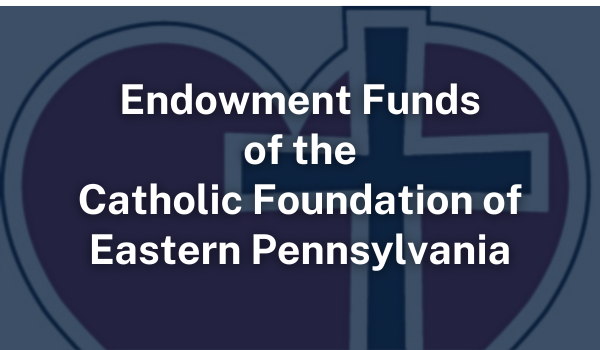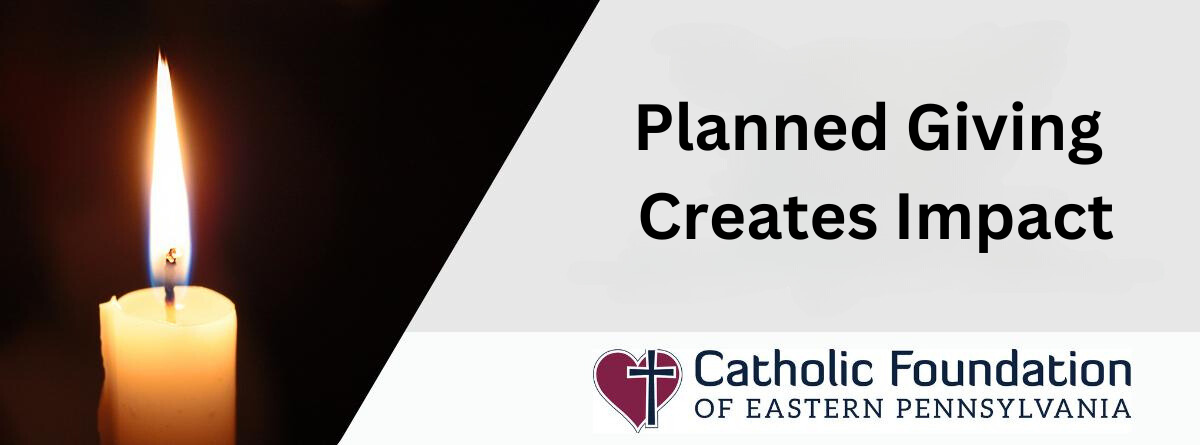Planned giving has become an appealing means for individuals and couples to create a lasting legacy, allowing them to make a substantial impact that goes beyond what they could achieve during their lifetime. This method of giving provides an opportunity to leave a lasting mark, reflecting one’s values and their desire to support others.
During the past 10 years, the Catholic Foundation of Eastern Pennsylvania has been helping people achieve a lasting legacy with a planned gift designated to the endowment funds of their favorite Catholic causes. Traditionally the third week in October has been designated as National Estate Planning Week.
“Every week should be estate planning week,” Pete Waldron, President of the Catholic Foundation, said. “It’s important that people get their plans in place to protect themselves, their families and the Catholic causes they love.”
Contrary to common misconceptions, planned giving is not limited to a specific asset given for general operating needs. There are numerous options available for creating a gift that allows individuals to provide for their families while also contributing to an organization that holds personal significance.
Variety of Bequest Options
 First, a bequest — a gift in a will — can be tailored in various ways. Donors can specify their gift to support a particular use within the organization, such as establishing a scholarship fund. Alternatively, a donor can choose to create an endowed bequest, ensuring that the funds are held forever, with only distributable earnings utilized.
First, a bequest — a gift in a will — can be tailored in various ways. Donors can specify their gift to support a particular use within the organization, such as establishing a scholarship fund. Alternatively, a donor can choose to create an endowed bequest, ensuring that the funds are held forever, with only distributable earnings utilized.
Secondly, there are different types of bequests. A residuary bequest designates the remainder of an estate to a nonprofit after addressing other beneficiaries. A contingent bequest provides the organization with a gift only if the primary beneficiary mentioned in the will does not survive the donor.
Donors are also not confined to leaving specific assets or fixed amounts; they can designate a percentage of their estate’s value to the charitable organization.
Finally, your favorite Catholic cause can be named as a beneficiary of other assets, such as life insurance, IRAs, and retirement plans. When naming a beneficiary, donors may specify a percentage of the asset’s value to be directed to the Catholic Foundation for the endowment fund of their favorite Catholic cause.
Legacy gifts Impact the Future
Planned giving is a simple way to make a gift that ensures that an individual’s current support for an organization or cause endures into the future.
“Making a legacy gift to an endowment fund takes planned giving the next level,” Waldron said. “Donors love knowing their gift lives on forever and provides a Catholic parish, school or ministry with ongoing income.
“It’s like your weekly envelope for your parish or your annual fund gift to your alma mater continues long after you have gone to heaven.”
The Catholic Foundations encourages donors to talk their financial advisors and put together a plan that best suits their situation. Advisors help clients select the most appropriate planned giving options that will provide the biggest impact and the best tax benefit for the individual and their family.
When done correctly with a thoughtful approach, a planned gift to an endowment fund with the Catholic Foundation can create a profound impact for the donor, their family and the Catholic causes they love.


